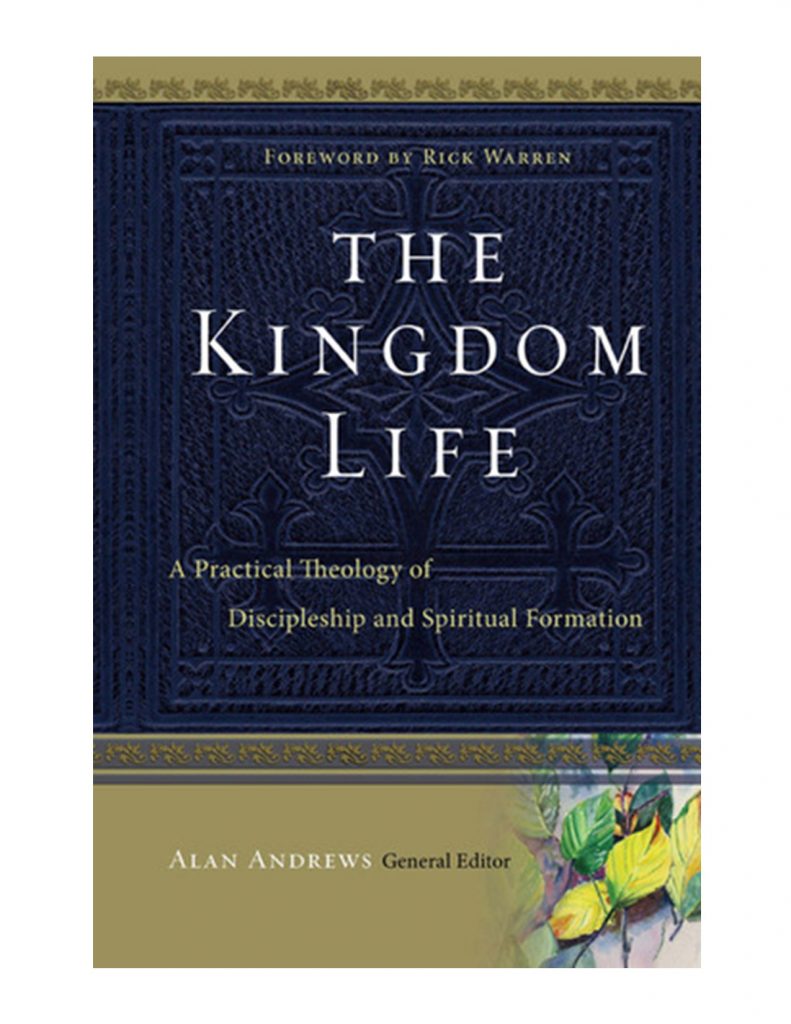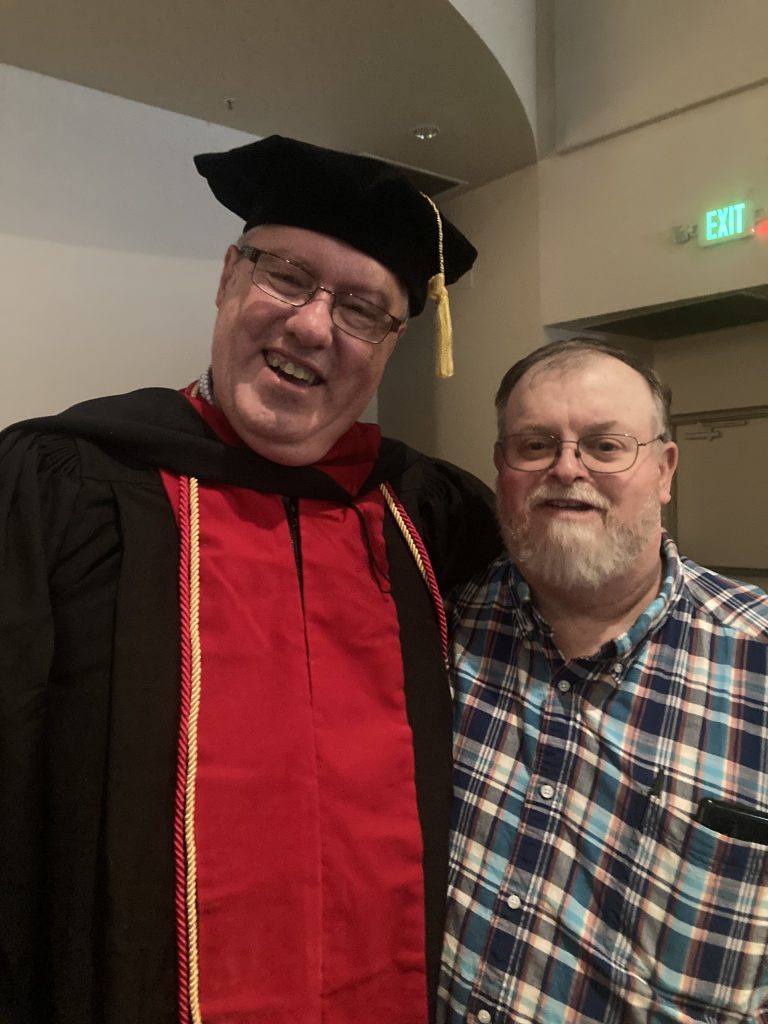Where Are You Coming From, and Where Are You Going?
Genesis 16:1-3, “Now Sarai, Abram’s wife, had borne him no children. She had a female Egyptian servant whose name was Hagar. And Sarai said to Abram, “Behold now, the LORD has prevented me from bearing children. Go in to my servant; it may be that I shall obtain children by her.” And Abram listened to the voice of Sarai. So, after Abram had lived ten years in the land of Canaan, Sarai, Abram’s wife, took Hagar the Egyptian, her servant, and gave her to Abram her husband as a wife.”
So here we see a guy named Abram and his wife Sarai. Later, God will change their names to Abraham and Sarah. God had made a promise to Abram that he would have a son. Abram and his wife were both already well past the time for childbearing, but they had no children. For a woman during that time, it was an embarrassment for her to not have children. Sarai got the bright idea to help God out. Have you ever done that? It’s like a man working on his car. He asks his young son (who has been trying to help him), “Son, have you seen my wrench?” The young son replies with shrugging shoulders, “Yes, of course Dad. It’s in the mailbox.” That’s kind of how it looks when we decide we are going to help God along.
Sarai offered to give her servant, Hagar to her husband to have a child with her. This was a common practice in that part of the world. When a slave was given in this way, when they had a child, the child would be adopted into the family as the free woman’s child. That was probably what Sarai was thinking. She would help God out. Her lack of faith led her to make this bad decision.
The Bible’s standard of marriage is one man and one woman for a lifetime. The Bible does not condone marriage between two men, or two women, or a man and multiple women, or a woman and multiple men, or any other combination. God’s clear direction was for a man and woman to come together in marriage as one flesh for a lifetime. Sarai was encouraging Abraham to marry another to have a son; something that went against God’s standard of marriage.
Abram should have said something like, “Sarai, I love you so much. But you are my wife. We are in this together, so let’s wait on God in faith” Instead, he took Sarai’s bad advice and took their household servant and slept with her. Perhaps his own lust for this young woman overrode what he knew in his heart was the right thing to do. Abram was not known for always making the best decisions. When he was in Egypt years earlier, he told his wife to say she was his sister. Sarai was very beautiful, and Abram was afraid the Egyptians would kill him to have her. Sure enough, the pharaoh saw her, and wanted her. He took her with plans to marry her. God warned pharaoh in a dream that she was already married. He went to Abram demanding answers. Abram said Sarai was a half-sister, so he wasn’t lying, he just wasn’t telling him the whole truth. Pharaoh sent him away with money, jewels, animals, and servants, of whom Hagar was one. Now Sarai was offering her servant to her husband. This is a messed-up situation. If you want to see a dysfunctional, messed-up family, all you have to do is open your Bible. There are lots of examples. Let’s read on.
V. 4-6, “And he went in to Hagar, and she conceived. And when she saw that she had conceived, she looked with contempt on her mistress. And Sarai said to Abram, “May the wrong done to me be on you! I gave my servant to your embrace, and when she saw that she had conceived, she looked on me with contempt. May the LORD judge between you and me!” But Abram said to Sarai, “Behold, your servant is in your power; do to her as you please.” Then Sarai dealt harshly with her, and she fled from her.”
Hagar was Sarai’s personal servant. She was probably a young woman who took care of the needs of her Mistress. She literally waited on her hand and foot. In that area of the world at that time, it was considered shameful for a woman to have no children. When Hagar became pregnant, she started getting an attitude like she thought she was better than Sarai. This was a dangerous thing to do. She may have even said something about this. Whether she said it directly, or behind the back of Sarai, it got back to her. This enraged her.
The Bible says Sarai got ticked off at her husband. She was mad and blamed him for what happened with Hagar. Abram didn’t want to get in the middle of these two women. He probably realized that he had made a mistake in listening to his wife and taking Hagar. So he told Sarai to deal with it as she saw fit.
Sarai dealt harshly with Hagar. Hagar decided she had had enough, and took off. She ran away from home.
V. 7-9, “The angel of the LORD found her by a spring of water in the wilderness, the spring on the way to Shur. And he said, “Hagar, servant of Sarai, where have you come from and where are you going?” She said, “I am fleeing from my mistress Sarai.”
In the Bible, when you read Angel of the Lord, this is referring to Jesus before his being born in a manger in Bethlehem. This is known as a theophany or a Christophany. Those are fancy theological terms for Jesus appearing in the Old Testament before he was incarnate as a babe in Bethlehem.
So the angel of the Lord, or Jesus, appeared to Hagar in the wilderness. He asked her two questions. The first question was “Where have you come from?” He knew where she had come from, but he wanted her to glance back and acknowledge. It can be dangerous to ask someone to look back when you want them to go forward.
The Apostle Paul addressed the danger of looking backward. He writes in Philippians 3:13-14, “Brothers, I do not consider that I have made it my own. But one thing I do: forgetting what lies behind and straining forward to what lies ahead, I press on toward the goal for the prize of the upward call of God in Christ Jesus.” But here, in Genesis, we see the Lord telling Hagar to look back at where she had come from. He did not want her to dwell on that, but to glance back and see where she had come from.
There is an old story about a farmer and his son. The farmer broke his leg and was laid up. It was very bad timing as they needed to get the field ready for planting, and it simply wouldn’t wait. The farmer called his son to his side. He said, “Look son, I know you have never plowed in the field, but I simply can’t do it, so you are going to have to do it. It’s not easy to make straight furrows. So here is the trick. When you are plowing, fix your eyes on something and keep looking at it as you plow.” The obedient son went out early the next morning and began plowing the field. He was out until dark. He went in to this father and proudly told him, “Well Dad, I did like you said. I started plowing and fixed my eyes on something and didn’t take my eyes off of it. It took me all day long, and it was really difficult, but I persevered, and I finally caught up with that calf.”
You can glance back at the previous year and see where you have come from. Have you made progress in your spiritual walk? Has God sustained you over the course of the year? We all have gone through difficult things in the last year, and perhaps you didn’t know if you were going to make it. Yet, here you are. It’s time for you to look forward. Don’t allow your past control your present.
There is a tree found in Mexico, in Florida, and around the Caribbean known as the Manchineel tree. The fruit from the tree is called the poison apple. One bite of the fruit from the tree can be fatal. Just touching the sap from the tree causes blistering burns. It is in the Guinness Book of World Records as the most dangerous tree in the world. If you were to stand under the tree in a rainstorm, you would get excruciating pain on your skin, and blisters. Burning the wood from the tree releases toxins into the air and can cause blindness. The indigenous people living in that area used to dip their arrowheads in the sap to make poisonous arrows. They would tie an enemy to the tree to make sure they died a slow and painful death. No one wants to be anywhere near that tree. People will avoid it. Some people are like that tree. Perhaps you know someone like that. They hold grudges and will not forgive people that they think wronged them. It makes them so bitter, they are like this toxic poisonous tree. You need to forgive others, not just for their sake, but so that you don’t become toxic like this tree.
The second question the Lord asked Hagar was “Where are you going?” Hagar might have said something like “I just came from a horrible situation. I was scared and I ran away. I don’t know where I am going to, I just know I needed to get away from Sarai.
The Lord wanted Hagar to contemplate her future. If someone were to ask you, “Where are you going in the next year?” You couldn’t answer completely because you don’t know what lies ahead. You can plan, set goals, and prepare for the future, but you don’t know exactly what is going to happen.
I don’t know if the National Enquirer is still in print. This was one of those tabloid newspapers available as you were waiting in line at the grocery store. They would have sensational headlines about UFOs, and Elvis sightings. Every year, they would list all the prophecies from the so-called psychics for the coming year. Some of them would give these wild predictions. 90% of the predictions would be wrong. If they were lucky, by sheer chance they might get 10% right. The only prophecies that are completely reliable come from the Bible. They either have been or are being fulfilled without fail. The Bible says the test of a prophet to see if God is really speaking through them is if their prophecies come true. If they do, they are hearing from God, but if they don’t they are not speaking for God and should be shunned.
Looking to the future, we don’t know what tomorrow holds, but we know who holds the future. Ultimately, we know that we are on our way to Heaven. Whether Jesus returns for us in the rapture, or we die and go to him through death, we know as Christians we will someday go to Heaven to be with Jesus. We know our ultimate destination.
Let’s read on. The Angel of the Lord asked Hagar where she came from and where she was going. V. 10-12, “The angel of the LORD also said to her, “I will surely multiply your offspring so that they cannot be numbered for multitude.” And the angel of the LORD said to her, “Behold, you are pregnant and shall bear a son. You shall call his name Ishmael, because the LORD has listened to your affliction. He shall be a wild donkey of a man, his hand against everyone and everyone’s hand against him, and he shall dwell over against all his kinsmen.”
The name Ishmael means God hears. God heard Hagar’s cry for help. Maybe Hagar didn’t think God heard her. She thought she was just a slave girl, so she was not anyone important. She was a nobody. Even her own Master, Sarai, had abused her and called her good for nothing. But now, the Angel of the Lord has appeared to her saying her son will be named, “God hears.” What a great reminder. Every time she called his name, she would be repeating “God hears.”
Now the prophecy about Ishmael and his descendants is very accurate. He is the father of the Arabs, and they are certainly numerous. Many of them live in tents and are Bedouins to this day.
Like Hagar, you may think you are someone insignificant, and unimportant. But God is telling you today, you are important to Him. No matter what your situation, or your position in life. You may think you are unworthy of any of God’s attention, but he hears you and He cares about you.
This passage is about to get good, so let’s read on. V. 13-14, “So she called the name of the LORD who spoke to her, “You are a God of seeing,” for she said, “Truly here I have seen him who looks after me.” Therefore the well was called Beer-lahai-roi; it lies between Kadesh and Bered.”
Beer-lahai-roi means the well of Him who lives and sees me.
Hagar is saying that she has seen the one who sees her. So not only did God see her, but he heard her. God was closer to her than she ever imagined.
Have you ever walked up in the middle of a conversation and heard something that sounded really strange? You are missing part of the conversation, so you don’t really know what’s going on. It would be easy to make a false assumption about the conversation.
They say that some 70 to 80% of communication is done through body language. If you hear a conversation but can’t see the person talking, you are only getting part of what is being said. Have you ever watched a television program where you couldn’t hear? Maybe the sound was down, or there was noise. You can see the action taking place, and see people talking, but you really can’t tell what’s going on. You are only getting part of the message.
Hagar is saying not only did God hear her, but sees her. He knows exactly what is taking place. Even though she felt insignificant and unimportant, God heard her and saw her grief and suffering. And if he knew what was happening with this little slave girl, he knows exactly what is going on with you too. Nothing is happening to you that God doesn’t see or hear. He knows what is coming.
Now that doesn’t mean you will always feel God’s presence. Imagine walking outside on a cold, wet blustery day. The clouds are dark and menacing. The ground is frozen, maybe there is even snow on the ground. Now imagine, as you’re walking outside, someone says, “I don’t think the sun is real.” What? You don’t think the sun is real because you can’t feel its heat, or see its light? It’s freezing cold, and dark because of the storm clouds. Does that mean the sun stopped existing? Of course not! Just because we can’t see it, or feel it, doesn’t mean it went away.
In the same way, we may not feel or see the hand of God in our lives. But that doesn’t mean it went away. We can expect God to be with us, and he will be honest with us. The Lord told Hagar some hard truths about her son. Ishmael would be against everybody, and everyone would be against him. He is going to be a wild, antagonistic man. That’s not what a Momma wants to hear, but God told her the truth.
When you go to a doctor, you want the doctor to tell you the truth, even if it is painful to hear. There are things in the Bible that are hard. Some things the Bible calls sin hit close to home. When we want to have compassion for people, we want to excuse their sin. But being loving involves telling the truth even when it is painful. Living in sin is not going to end well. We may not want to hurt their feelings, but like a doctor, we need to speak the truth in love.
Back in verse 9, the Lord told Hagar to return to Sarai, and he would be with her. Let’s read the last couple of verses in this chapter. V. 15-16, “And Hagar bore Abram a son, and Abram called the name of his son, whom Hagar bore, Ishmael. Abram was eighty-six years old when Hagar bore Ishmael to Abram.” So apparently, Hagar was obedient. She returned, and Ishmael was born. Abram was already 86 years old at this point.
You can glean from this story that God will be with you, he will be honest with you, and God may expect you to do very hard things. In John 14:21 Jesus said, “Whoever has my commandments and keeps them, he it is who loves me. And he who loves me will be loved by my Father, and I will love him and manifest myself to him.”
God told Hagar to return to her very difficult situation serving Sarai. She obeyed God, and God blessed her for it. This was not something easy to do. I imagine she was scared to return. She didn’t know what kind of punishment she would receive for running away in the first place. What would happen to her? Sometimes the things God asks us to do go against what we want to do. He wants us to live a life glorifying to Him. But the world wants us to live a different kind of life, and may make it very hard on you if you don’t live the way they want you to live.
Hagar received blessings because she obeyed God. She was just a simple servant girl. But God blessed her by multiplying her offspring. She became the mother of a huge nation.
So there are four things you see in this passage that can be applied to your life. First, God will be with you: second, he will be honest with you: third, he will ask you to do difficult things, but when you are obedient, he will bless you.
Hagar was not someone with power, wealth, or influence. She was just a servant girl. But she put her trust in God, and God blessed her beyond anything she could imagine. Even if you don’t think you are important or have much influence, God can use you and bless you if you put your trust in Him.









